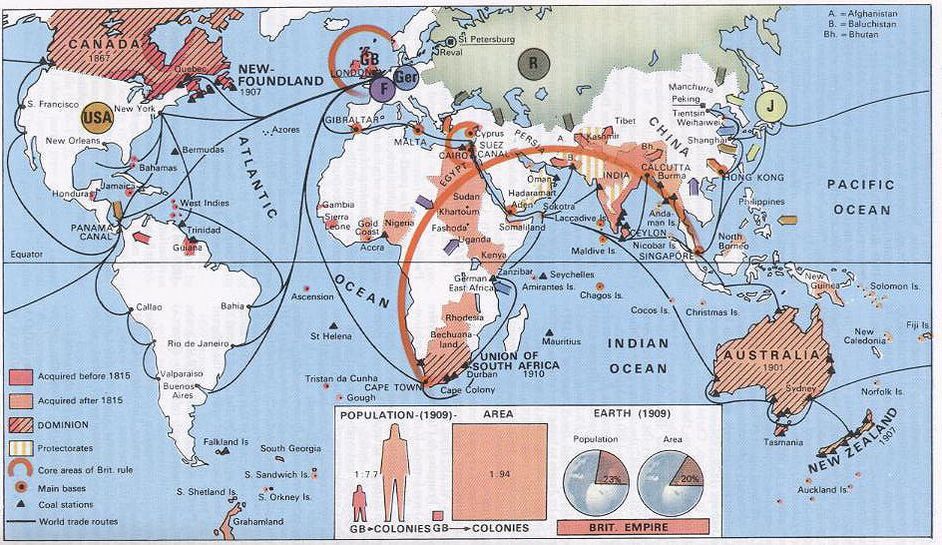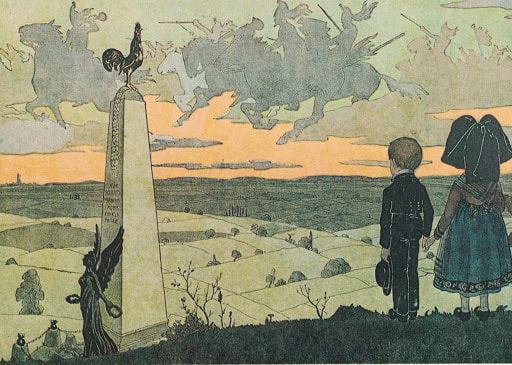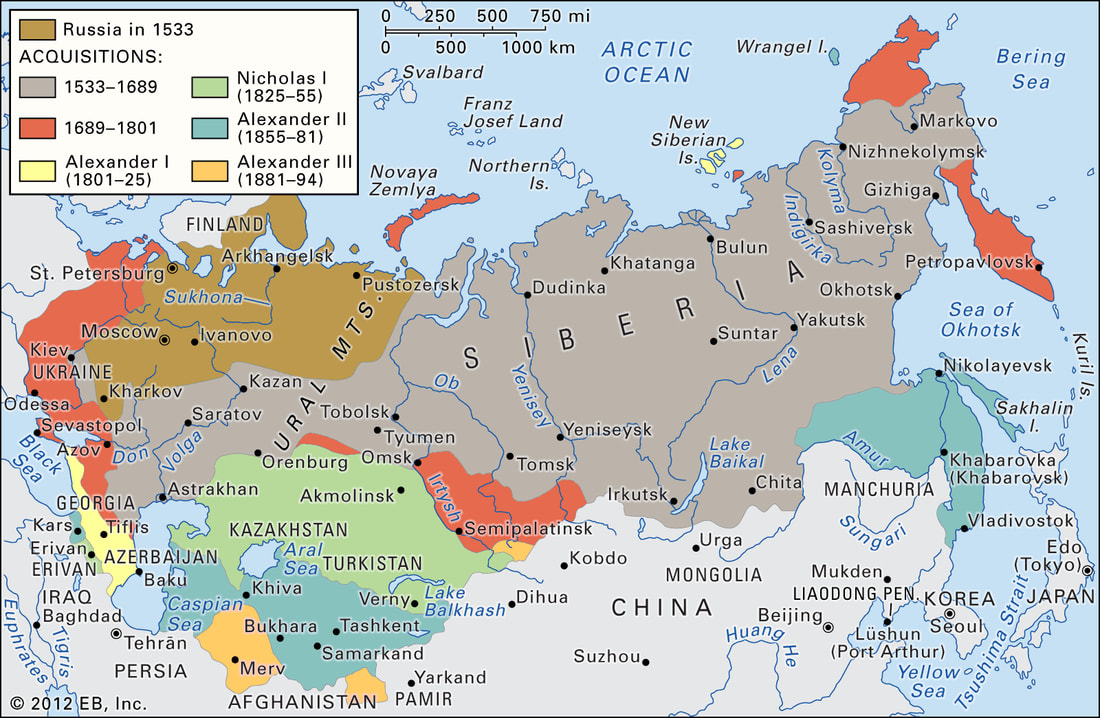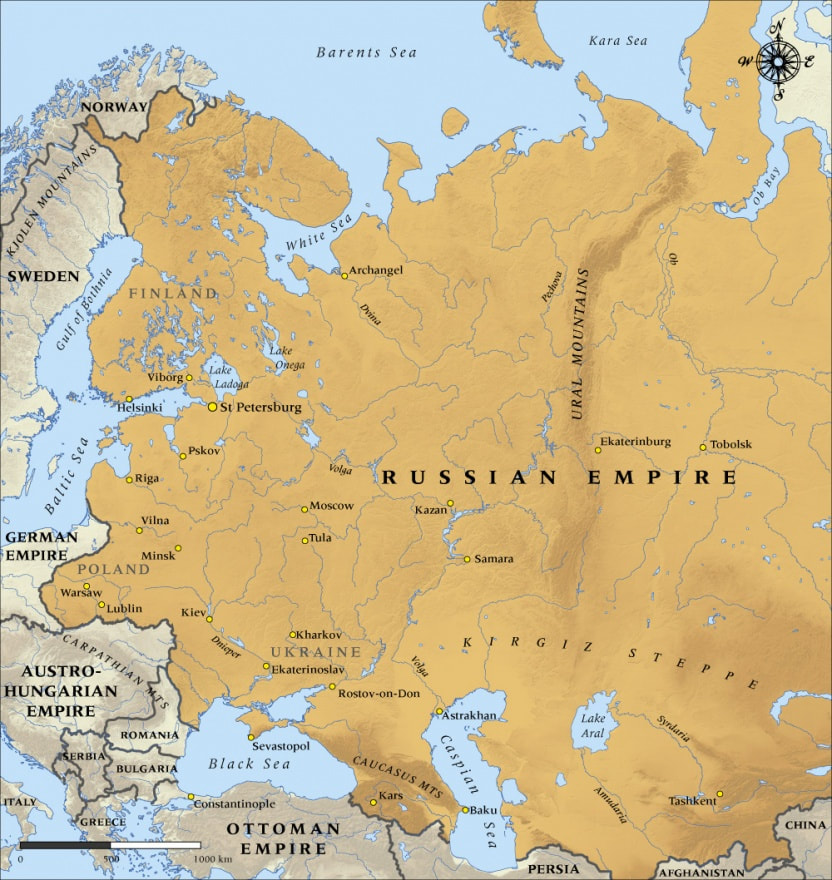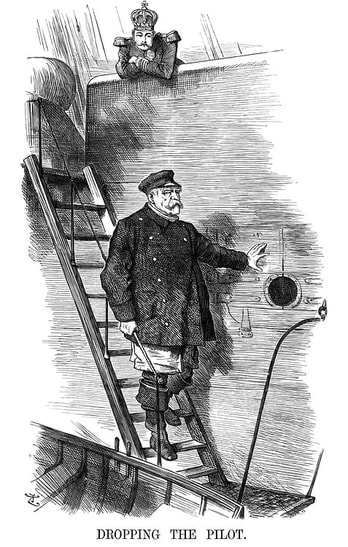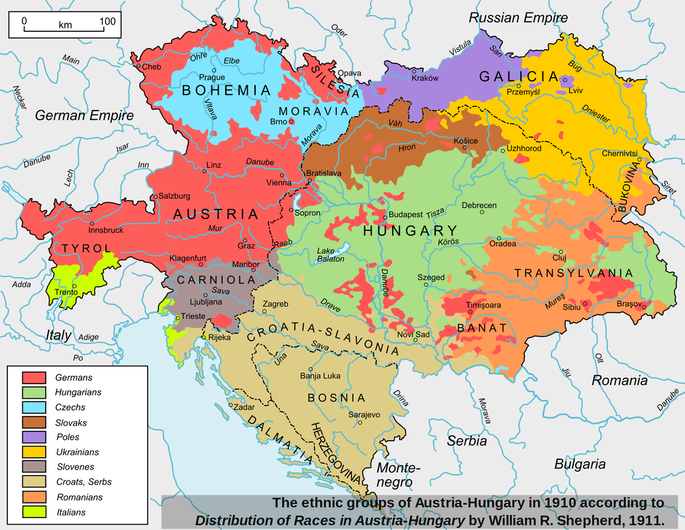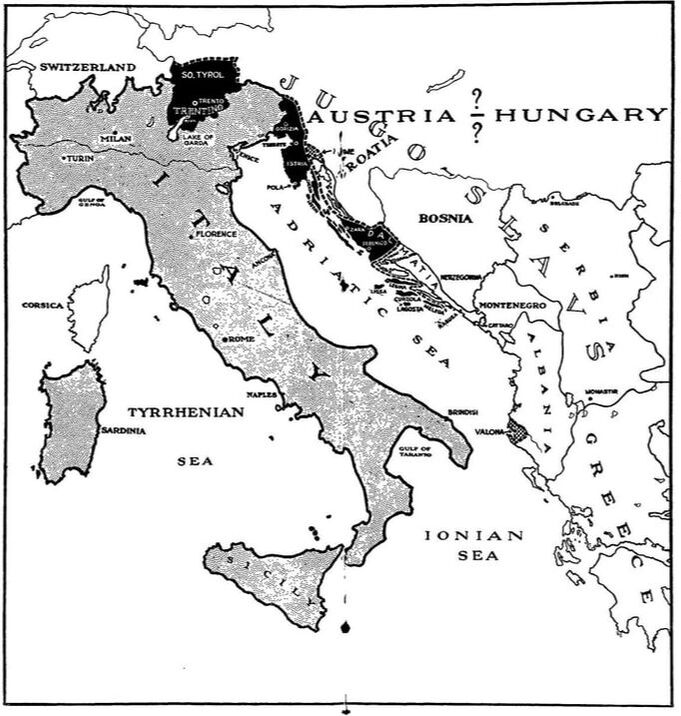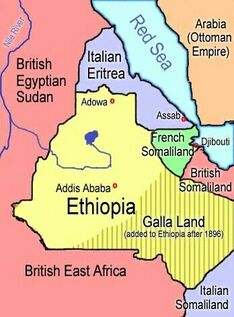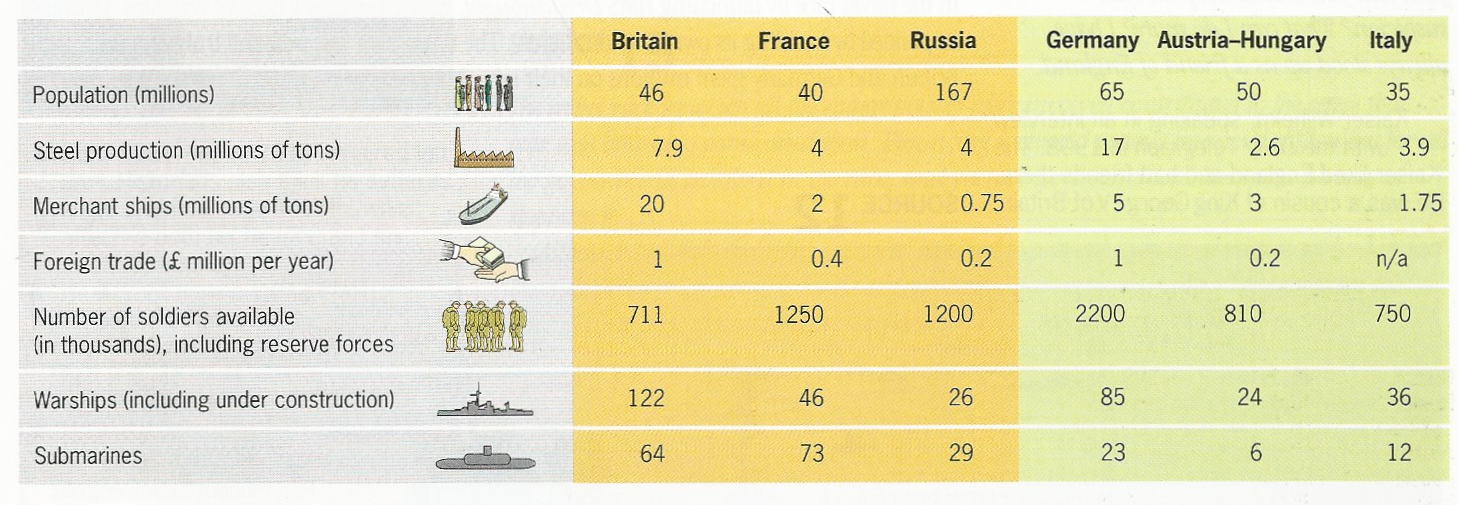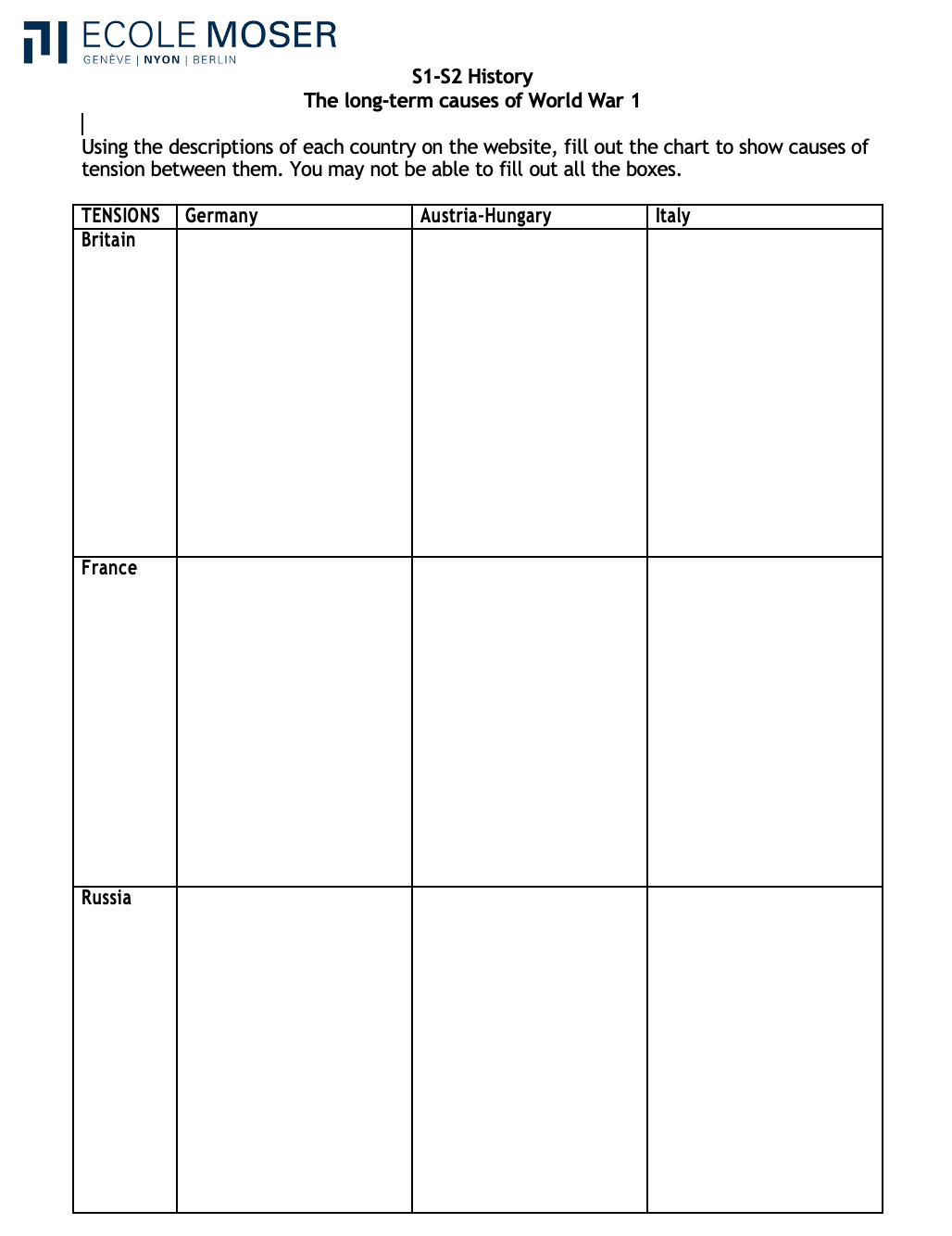Lesson 1 - Introduction - The long-term causes of WW1: Which were the six Great Powers of Europe before WWI?
|
Having studied nationalism and imperialism in the 19th century, you already have a solid grasp of the international situation in 1900. The video opposite is from a classic 1960s BBC production, the first major attempt to produce a television documentary about the war. This episode provides a country by country overview of 1914 that is worth watching. The people participating in the series were as close to the war of 1914, as we are to the 1960s film. Although very dated the series has the advantage of having interviews with participants when they were still relatively young. In the last six years or so there have been many fantastic resources produced to commemorate 100 years since the war. Why not watch some of them? |
|
It is important to think about what we mean when we say 'cause'. What we refer to as background causes are, in the strict sense, not causes—they did not make the First World War inevitable. Instead, in history, we must talk in terms of probabilities. What follows is a set of developments that made war more likely. These developments increased the suspicion, fear and tension between the European powers and therefore made war 'more likely'. Further, they made a big war more likely. The trend towards larger militaries, industrial capacity and empires made the chances that a short, limited, regional war involving two, maybe three, countries would stay contained slim at best. In 1914 the six most powerful countries in Europe were divided into two opposing sets of alliances. The Central Powers (Germany, Austria-Hungary and Italy) formed in 1882 and the Triple Entente (Britain, France and Russia) formed in 1907.
The Triple Entente
Great Britain
Great Britain
|
As we saw in our study of the Industrial Revolution, Britain under Queen Victoria (1837-1901) had become the richest and most powerful state on earth. For most of the 19th century, she had the richest industries, the most trade, the largest number of colonies and the biggest navy.
Britain was a constitutional monarchy. The king could not make his own laws and as we saw earlier, the franchise had been extended on a number of occasions after 1832 to give all men the right to vote at the start of the 20th century. The British monarch was not only the head of state of Great Britain, but also the Emperor of India and ruler of many other lands overseas. These colonies formed the British Empire, the largest empire in the world, nearly a quarter of the world's land surface. One quarter of the world's population lived in the British Empire. |
There were problems. Unemployment was rising. Workers in powerful trade unions were organising strikes. Riots and demonstrations were becoming common. Women suffragettes were demanding the right to vote The biggest problem facing Britain was what to do with Ireland. Ireland was part of Great Britain and was governed from London. But most Irish people wanted to change this. They wanted to break away from Britain and have Home Rule. Protestants living in the North, however, wanted to stay British. By 1914, both Protestants and Home Rulers were armed and ready to fight. It looked as if there would be a civil war in Ireland
Since the Napoleonic Wars and throughout the 19th Century Britain had tried not to get involved in mainland European politics. Its attitude became known as ‘splendid isolation’ as it concentrated on its huge overseas empire. For most of the nineteenth century, Britain had regarded France and Russia as its two most dangerous rivals. However, by the early 1900s the picture had begun to change. France and Britain had reached a number of agreements about colonies in North Africa. As we saw last week, in 1904 Russia was defeated in a war against Japan. This weakened Russia so that Britain less concerned about it.
Above all, Britain was very worried about Germany. The German Kaiser had made it clear he wanted Germany to have an empire and a strong navy, which Britain saw as a threat to its own empire and navy. Britain began to co-operate more with France and signed an agreement with it in 1903 (Entente Cordiale) and signed another agreement with Russia in 1907.
France
|
France was twice the size of Britain and about the same size as Germany. The land was fertile, she had an excellent transport system and she owned many colonies. But in spite of these advantages France was weaker than Britain and Germany. Her farms and factories produced less, the industrial revolution had been slower and her population was not only smaller than theirs but was actually shrinking. The defeat in the Franco-Prussian War obsessed French politics. After this defeat, the Germans took away two valuable provinces from France - Alsace and Lorraine. The loss of these provinces made many French people hate the Germans bitterly. Like many European countries traditional French politics was struggling to come to terms with the rise of the working class. Trades Unions were growing in power and the socialist party was becoming influential and threatening revolutionary change (again, 1789, 1830, 1848, 1871).
|
At the start of the century France was most famous for its artistic life and for its fashion. Many of the world's most famous painters, designers, writers, scientists and musicians lived and worked in France. Paris was not only the capital of France, but the cultural capital of the world. Unlike the other great powers of Europe, France was a republic - that is, a country ruled by an elected president. France had the second largest empire in the world. France was worried about the growing power of Germany, so the French had also built up their industries and armies. France had also developed a strong and close friendship with Russia including an alliance in 1894. Most of her colonies were in Africa and her other main colonies were in the Far East, in Indo-China. The French army in Indo-China was often at war with groups of rebels who wanted independence, and the cost of fighting was a drain on France's men and money.
Russia
|
Russia is the largest country in the world but, in 1900, she was also one of the poorest. She was very rich in minerals - oil, coal, iron ore, gold, etc - but these had not been exploited. The country was almost entirely agricultural, although loans from France had helped Russia to develop some industries. She had a huge population but most people lived in the western half of the country. Russia had great amounts of land but much of it was too cold for farming. She had a long coastline but most of it was frozen for half the year, making sea transport impossible. And Russia was an empire of many peoples, each speaking a different language, from the Finns in the north to the Caucasians in the south and the Poles in the west. All these things made Russia hard to govern as the threat of nationalist independence groups was very real.
|
Russia was politically archaic. Feudalism had only finally been ended with the freeing of the serfs in 1861. An autocrat like Louis XVI, Russia's ruler Tsar Nicholas II was a weak man. He was a bad judge of people and was easily influenced by poor advisers. In 1905, partly as a result of the defeat in war to Japan, Russia suffered a revolution which nearly brought down the Tsar. There were many revolutionary groups on the extreme left, anarchists and socialists, (Lenin's Bolsheviks will be important later) who were plotting to seize power. The industrial revolution had begun in Russia and capitalism was expanding quickly. Just as in the early stages of the Industrial Revolution in Britain, most Russians lived and worked in dreadful conditions. Workers in the towns laboured for up to fourteen hours a day for very low wages. Their homes were crowded and unhealthy. Workers like these had little reason to support the Tsar. Many were ready to rebel against him and join the anarchists and socialists.
|
Nearly eight out of ten Russians were peasants who scraped a living by farming small plots of land. At the best of times, life was hard and short for the peasants. In bad times, when the harvest was poor, many died while others lived desperately close to starvation. Like the workers in the towns, the peasants were ready to rebel against the rule of the Tsar.
In the 19th century, Russia had sought to gain influence in the Balkans. Just as in the Far East, access to the Mediterranean via the Black Sea was important to a country whose northern ports were frozen for months of the year. The Crimean War 1853-56 had seen Russia go to war against the Ottoman Empire for influence in the region (this remains a contemporary issue). The intervention of Britain and France were critical to Russian defeat. This was also a reason for the long history of rivalry with Austria-Hungary and why Russia was so friendly with Serbia. Another reason was that both Russians and Serbs were Slavs. Many other Slavs lived in Austria-Hungary’s empire. Russia felt it should have influence over them. Russia shared France’s worries about the growing power of Germany. The Russians began to build up a large army in case of emergencies in the future. |
The Triple Alliance
Germany
In 1914 Germany was less than fifty years old. As we saw, Chancellor Bismarck of Prussia united the German states into a new country - the German Empire. In 1870 the Prussian statesman Bismarck won a war against France, after which he united the many German states into a new and powerful German empire. Germany was the most powerful country on the European continent and had 1870 begun to over take Britain economically. Germany too had her problems. As in all the European countries, many workers were unhappy because their wages were low, food was expensive and working conditions were bad. More and more workers were joining trade unions and organising strikes, hoping that this would force the government to improve their conditions. Many were also joining the Socialist Party which wanted Kaiser Wilhelm to share his power with Germany's parliament. Some Socialists wanted to overthrow him in a revolution. In 1914 the German Socialist Party was the most important in Europe.
In 1914 Germany was less than fifty years old. As we saw, Chancellor Bismarck of Prussia united the German states into a new country - the German Empire. In 1870 the Prussian statesman Bismarck won a war against France, after which he united the many German states into a new and powerful German empire. Germany was the most powerful country on the European continent and had 1870 begun to over take Britain economically. Germany too had her problems. As in all the European countries, many workers were unhappy because their wages were low, food was expensive and working conditions were bad. More and more workers were joining trade unions and organising strikes, hoping that this would force the government to improve their conditions. Many were also joining the Socialist Party which wanted Kaiser Wilhelm to share his power with Germany's parliament. Some Socialists wanted to overthrow him in a revolution. In 1914 the German Socialist Party was the most important in Europe.
|
In 1871, Germany had taken from France the important industrial area of Alsace-Lorraine and, to guard against a revenge attack from the French, formed an alliance with Austria-Hungary and Italy. Bismarck went on to established a complex set of alliances and through careful diplomacy tried to keep her potential enemy France isolated. The key to this was the Three Emperors League between Germany, Russia, and Austria-Hungary, which William I signed in October 1873 and which was renewed twice in 1881 and 1884. Bismarck even encouraged French imperialism in order to bring France into potential conflict with Britain. Germany's imperial ambitions were deliberately restrained in order to restrict possible causes of conflict. Then when the new German Emperor, Kaiser Wilhelm II came to power in 1888, and when he sacked Bismarck in 1890 everything changed. (See cartoon right)
The German Kaiser felt that Germany should be a world power and should have overseas colonies and an empire like France and Britain had. The Germans had established two colonies in Africa, but they wanted more. In the 1890s the Kaiser ordered the building of a large navy, which soon became the world’s second most powerful fleet. Britain’s was the largest and most powerful. German leaders were very worried by what they called ‘encirclement’. Friendship between Russia to the east and France to the west was seen as an attempt to ‘surround’ and threaten Germany. Germany was also concerned by the huge build-up of arms, especially in Russia, and was itself building up a vast army. The new Germany was especially successful in industry. By 1914 German industry had overtaken Britain’s and was second in the world only to that of the USA. |
Austria-Hungary
Austria-Hungary had become a union of two separate countries. The union was established by the Austro-Hungarian Compromise on 30 March 1867 after the defeat of Austria in the Austro-Prussian War. It was ruled by the House of Habsburg and following the 1867 reforms, the Austrian and Hungarian states were co-equal in power. Foreign and military affairs came under joint oversight, but all other governmental faculties were divided between respective states. Inside each country lived many different peoples, or nationalities, each with its own language, its own customs and its own way of life. Like Russia, this made the country very hard to govern, especially as many of the peoples wanted to be independent of Austria-Hungary so that they could rule themselves in their own ways. The 'patchwork' of peoples was falling apart. Like Russia, Austria-Hungary had no colonies overseas. Nor did Franz Joseph aim to get any. He already ruled an empire of eleven different nationalities, many of them wanting their freedom.
Austria-Hungary had become a union of two separate countries. The union was established by the Austro-Hungarian Compromise on 30 March 1867 after the defeat of Austria in the Austro-Prussian War. It was ruled by the House of Habsburg and following the 1867 reforms, the Austrian and Hungarian states were co-equal in power. Foreign and military affairs came under joint oversight, but all other governmental faculties were divided between respective states. Inside each country lived many different peoples, or nationalities, each with its own language, its own customs and its own way of life. Like Russia, this made the country very hard to govern, especially as many of the peoples wanted to be independent of Austria-Hungary so that they could rule themselves in their own ways. The 'patchwork' of peoples was falling apart. Like Russia, Austria-Hungary had no colonies overseas. Nor did Franz Joseph aim to get any. He already ruled an empire of eleven different nationalities, many of them wanting their freedom.
Italy
Italy was the sixth of the Great Powers, but only 'great' in ambition and potential. As we have seen previously this year, Italy was created in the 1850s and 60s largely as a result of international events that were not totally under her control. Like Germany, Italy was formed from a collection of smaller states but was deeply divided between north an south each with it's own set of problems.
Italy was the sixth of the Great Powers, but only 'great' in ambition and potential. As we have seen previously this year, Italy was created in the 1850s and 60s largely as a result of international events that were not totally under her control. Like Germany, Italy was formed from a collection of smaller states but was deeply divided between north an south each with it's own set of problems.
|
In the south of Italy, poor peasants made up the bulk of the population and as in Russia many were attracted to the politics of anarchism which promised land redistribution and decentralised control. In the north, around industrial centres in Milan and Turin, working class trades union and socialist movements like in France, Germany and Britain promised egalitarianism and workers' control.
Italy had only extended the franchise to all adult men in 1912 and up to this point governments were formed by factions that assembled around leading liberal politicians who did deals to rule amongst themselves. This process was called ‘trasformismo’ and was designed to keep mass parties, especially the socialists, out of power. The lack of social cohesion in Italy wasn’t helped by the fact that the Pope still refused to recognise the legitimacy of the Italian state which had seized the Papal lands in 1870 and fact that many Italian speaking territories continued remain outside the kingdom. |
|
For many Italian nationalists concerns revolved around the incomplete status of the unification project; the ‘terra irredenta’, the lands that had been inhabited by Italian speakers in the former Austro-Hungarian empire. (see map above) These nationalists and the ruling elite as in other European powers, also wanted to set up colonies and build up an overseas empire, but this had been largely disappointing. In 1879 Italy tried to move into Ottoman controlled Tunisia but lost out to France. As a result of this disappointment, Italy joined Germany and Austria in the Triple Alliance. In the 1880s, with the secret support of Britain it moved into the horn of Africa with the ultimate ambition of subjugating Abyssinia (Ethiopia) one of the rare still independent African states. First Italo-Ethiopian War broke out in 1895 but Italy was defeated by Ethiopian forces at the Battle of Adawa in 1896. Italy also faced humiliation at the hand of China who refused to grant the same rights to Italy as had been awarded to other European powers. Only after the Boxer Rebellion did Italy get a foothold in Tientsin in 1901.
|
The relative strengths of the Great Powers in 1914
|
Activities
|
Extras and extension
|
|
|


